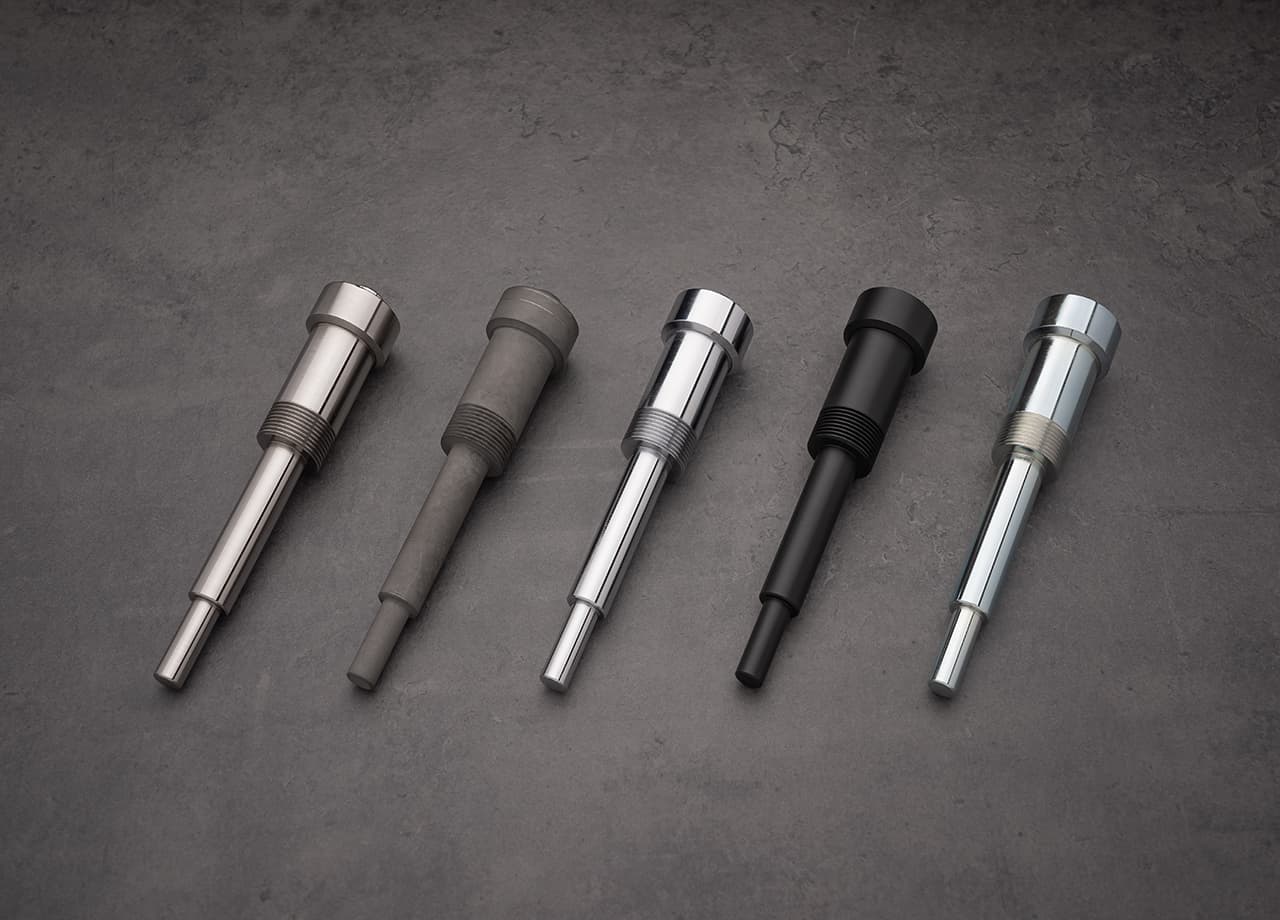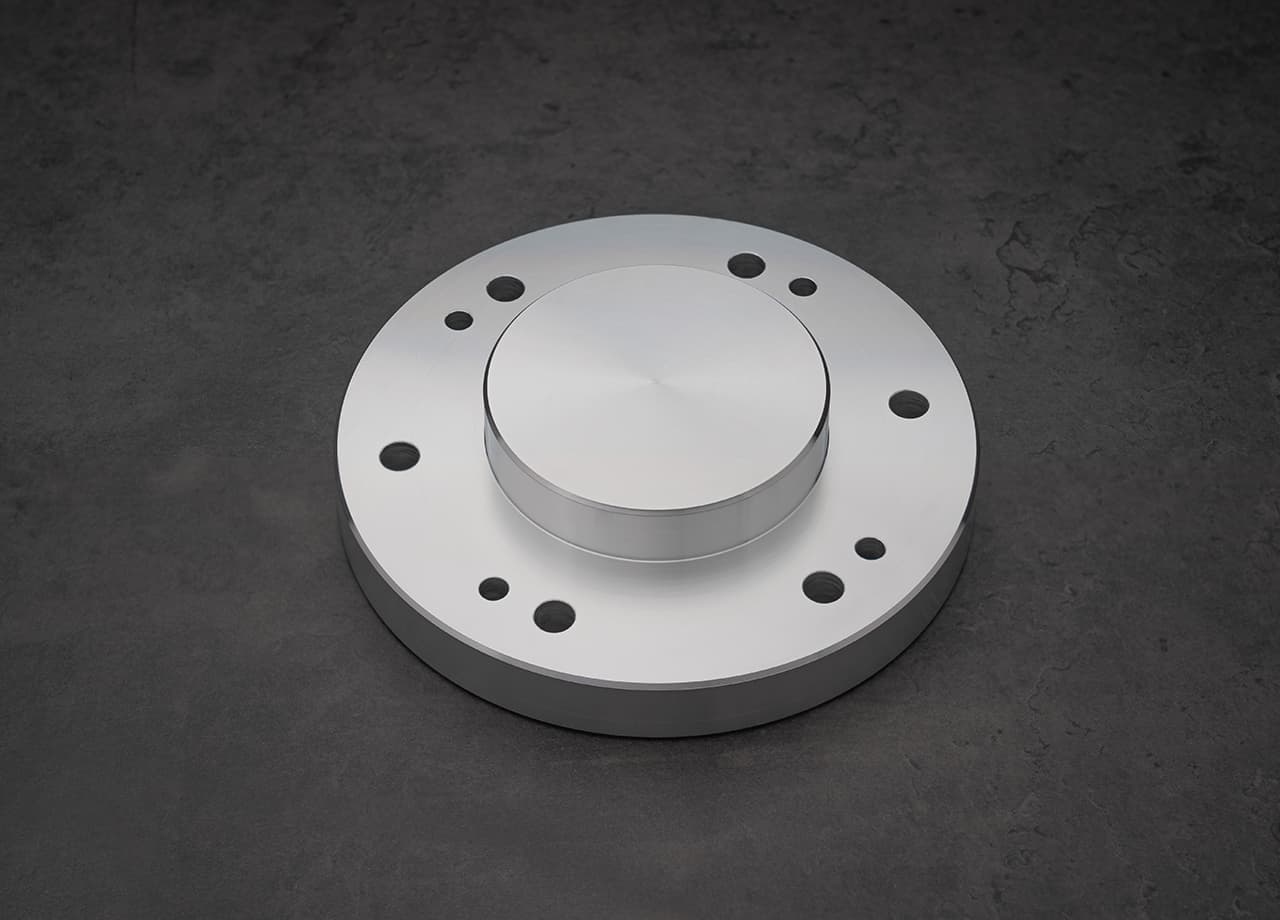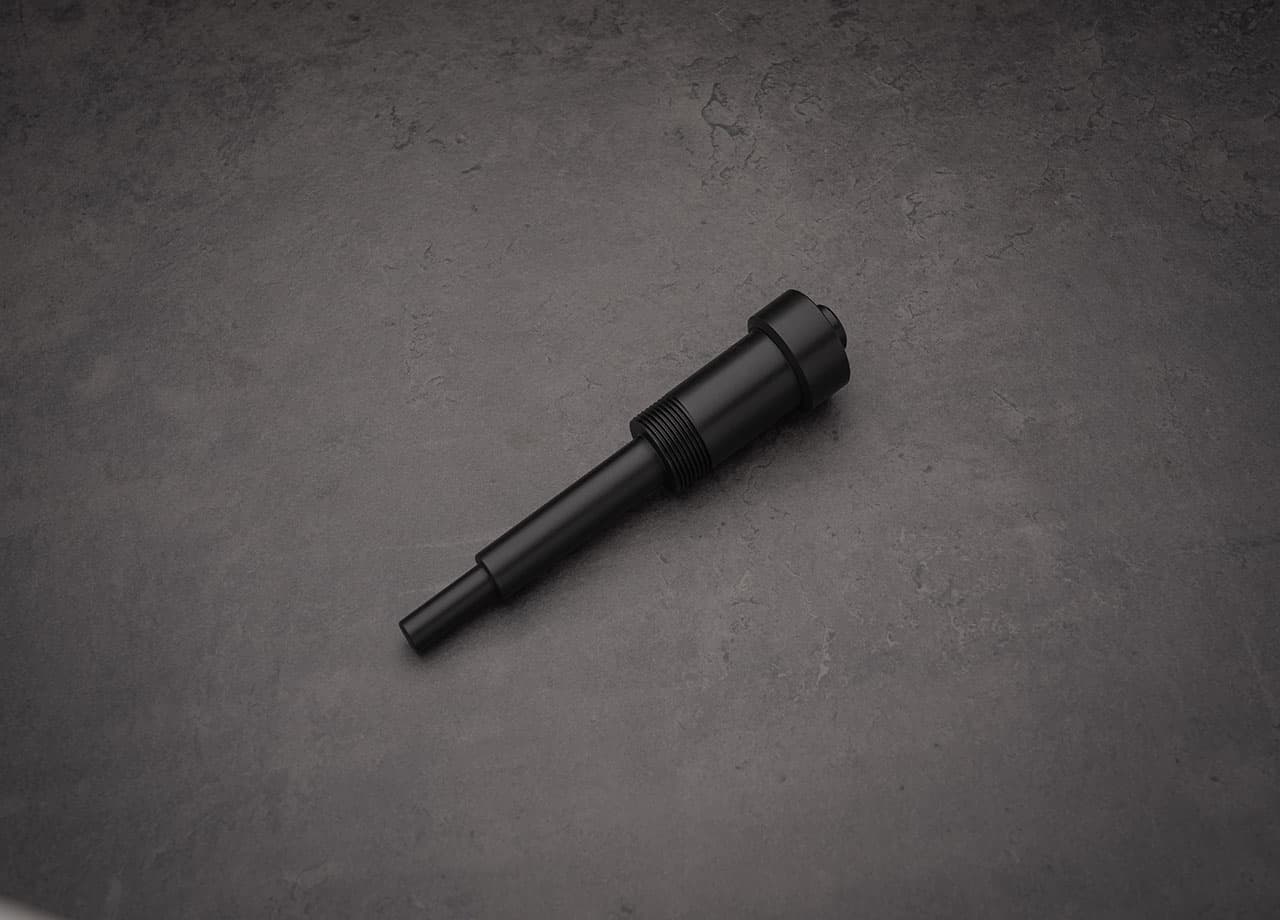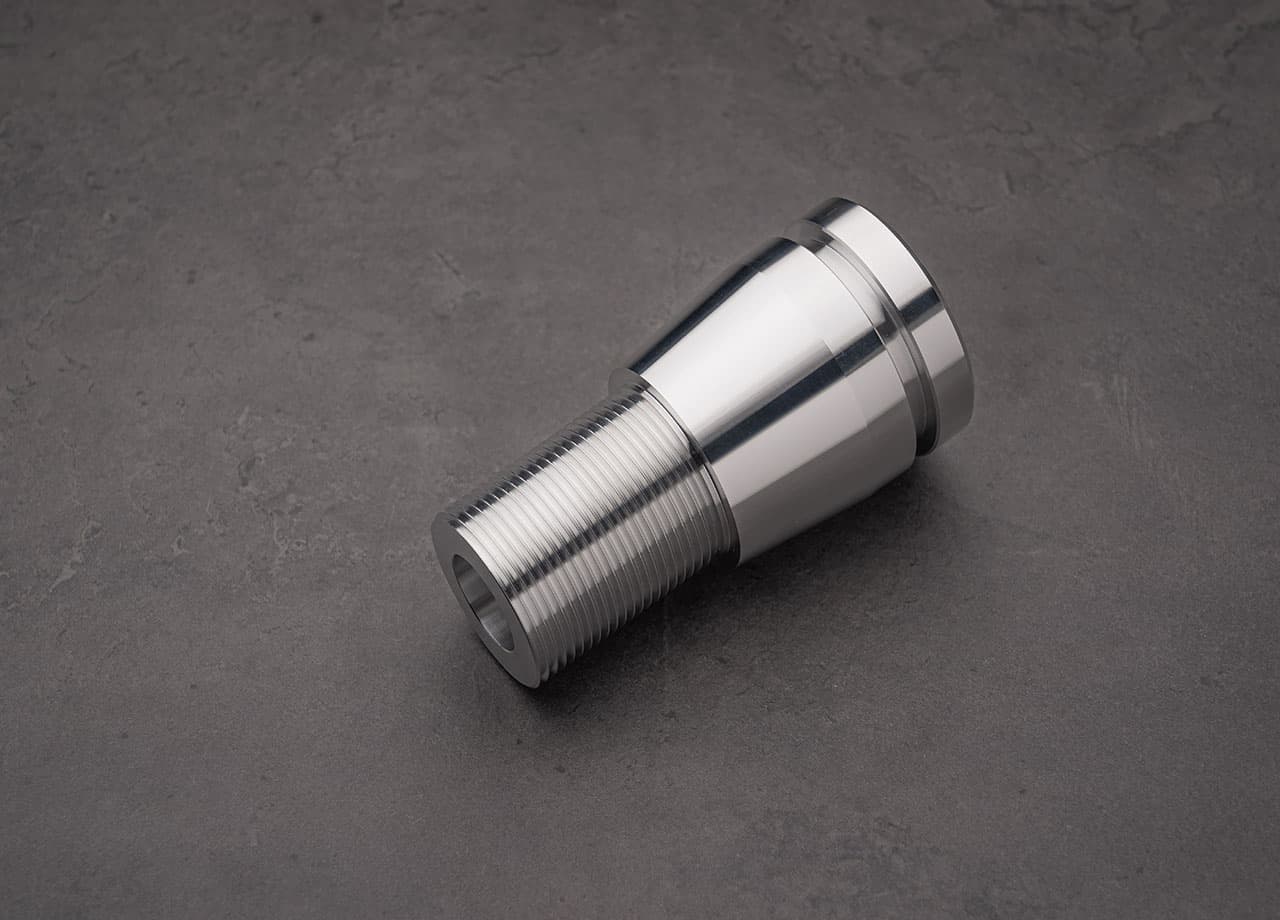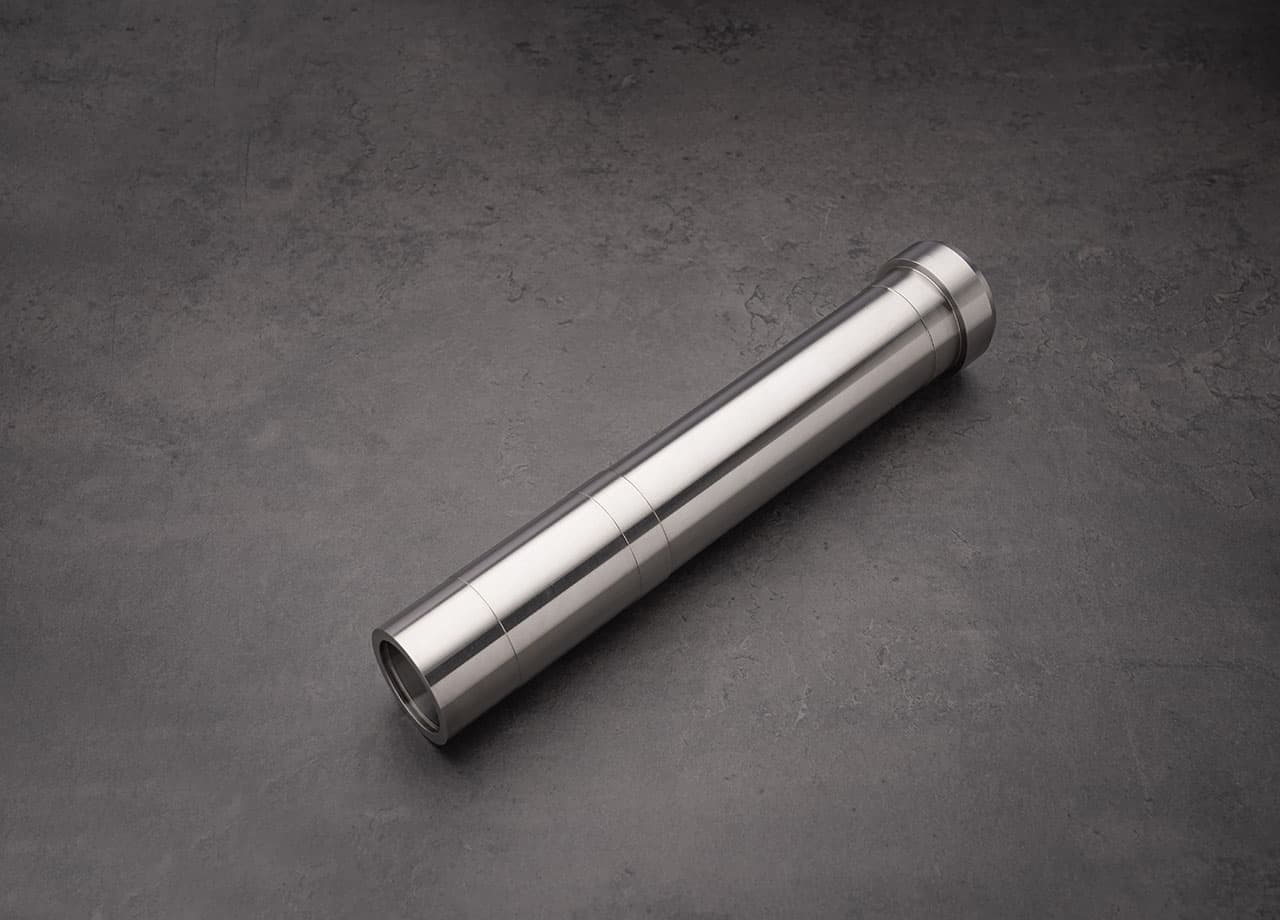CNC Turning Service - Order Turned Parts Online
With meviy, you can quickly and conveniently order CNC turned parts online by uploading your 3D CAD file. Our platform offers a wide selection of materials and surface treatments, enabling you to customise your CNC turning projects to meet precise specifications. Trust meviy for high-quality, accurate CNC turned parts designed to suit your specific needs.
Get Your First Part for FreesOrder Turned Parts with meviy
Our Service for Turned Parts
Our service for CNC turning delivers outstanding quality across all options, including material selection and surface treatments. Below, explore detailed information about our extensive range of materials, such as aluminium, steel, stainless steel, copper and plastics, paired with precise finishes designed for your needs.
With our reliable CNC turning services, you can confidently customise your CNC turned parts to meet the highest standards of accuracy and durability, ensuring superior results for any project. Trust us for all your CNC turning requirements.
- EN 1.1191 equiv.*
- EN 1.0038 equiv.
- EN 1.7220 equiv.*
- EN 1.2510 equiv.*
- EN 1.2379 equiv.*
- EN 1.2344 equiv.*
- EN 1.3505 equiv.*
- EN 1.4305 equiv.
- EN 1.4301 equiv.
- EN 1.4401 equiv.
- EN 1.4125 equiv.*
- EN AW-2017 equiv.
- EN AW-5056 equiv.
- EN AW-6061 equiv.
- EN AW-7075 equiv.
- EN CW614N equiv.
- POM (Acetal, Standard, white)
- POM (Acetal, Standard, black)
- MC Nylon (Standard, blue)
- MC Nylon (Weather resistance, black ash)
- ABS (Standard, black)
- ABS (Standard, natural color)
- PC (Standard, transparent)
- PC (Standard, black)
- PP (Standard, natural color)
- Flourine (PTFE, Standard, white)
- PEEK (Standard, grey-brown)
- PPS (Standard, natural color)
- Acrylic (Standard, transparent)
- UHMWPE (Standard, white)
- PVC (Standard, grey)
- Black Oxide
- LTBC-Surface-Treatment
- Electroless Nickel Plating
- Hard Chrome-Plated
- Trivalent Chromated (Clear)
- Trivalent Chromated (Black)
- Salt Bath Nitriding
- Phosphating (Manganese)
- Anodise (Clear)
- Anodise (Black)
- Anodise (Black Matt)
- Hard Anodise (Clear)
* Heat treatment is available.
Introduction to CNC turning
This introduction explores the basics of CNC turning (Computerised Numerical Control), a foundational process in modern manufacturing technology.. In turning, material is removed from a workpiece using rotating cutting tools to manufacture complex shapes and precise components. Similar to milling, CNC lathes also offer numerous advantages over manual processes. Automation enables more precise and repeatable results, which leads to increased product quality and efficiency in production.
The lathes operate using predefined programs, known as CAM (computer-aided manufacturing) systems, which control the movements of the cutting tool. These programs are created using CAD software and include PMI (Product Manufacturing Information) about the parts to be produced and the required turning operations. There are various types of turning tools that are used depending on the requirements of the workpiece and the desired surface finish. Typical tools include turning tools, boring bars and taps.
The choice of material is an essential aspect of turning. Various materials such as metals, plastics and composites can be machined. The right choice of material and the adjustment of cutting speeds are crucial for the machining quality and tool life. Turning is used in various industries, including the automotive industry, aerospace, electronics and medical technology. It enables the manufacture of precise parts and components for complex devices and machines.

Accuracy and precision depend on various factors, including the quality of the machine, the choice of tools and the experience of the operator. Thorough planning and programming are crucial to the success of turning operations. Overall, turning with CNC machines offers an efficient and precise method of manufacturing high-quality parts and components. With the continuous development of technology and tools, turning remains an important part of modern manufacturing technology.
Turned Parts Manufactured to the Highest Quality with meviy
Welcome to our showcase of precision-crafted CNC turned parts! Manufactured using advanced CNC turning technology, these parts ensure exceptional quality and performance for a variety of applications.
Explore the versatility of our CNC turning services, offering a wide range of materials and finishes. Designed for superior accuracy and durability, these CNC turned parts are ideal for projects that require top-tier precision and reliability, meeting the highest industry standards.
CNC Turning - Frequently Asked Questions (FAQ)
1. What are CNC turning parts?
CNC turning parts are mechanical components made using computer-controlled lathes (CNC machines). This technology allows precise and efficient machining of cylindrical or complex shapes used across various industries.
2. What are the benefits of CNC turning parts?
CNC turning offers high precision, repeatability, and the ability to create complex geometries with tight tolerances. Automated manufacturing reduces human error, ensuring efficient production of large quantities with consistent quality.
3. What materials are used for CNC turning parts?
CNC turned parts can be made from materials such as stainless steel, aluminium, copper and various plastics. The choice of material depends on specific requirements like strength, weight, corrosion resistance, and thermal properties. meviy currently offers steel, stainless steel, aluminium, copper, and plastic for CNC turning parts.
4. How are CNC turning parts made?
CNC turning parts are produced on CNC lathes, where the material is rotated while a computer-controlled cutting tool shapes it precisely. The CNC process allows complex designs to be programmed and ensures consistent manufacturing.
5. In which industries are CNC turned parts used?
CNC turning parts are used in many industries, including automotive, aerospace, medical technology, electronics, mechanical engineering, and consumer goods. They are found in components like engines, medical devices, electronic housings, and more.
6. How precise are CNC turning parts?
CNC turned parts can be manufactured with very tight tolerances, often in the micrometre range. This level of precision is crucial in industries like aerospace and medical technology, where exact measurements are essential for the functionality of components.
7. What does it cost to manufacture CNC turned parts?
The cost of producing CNC turning parts varies depending on factors such as material, design complexity, tolerances, and quantity. While CNC turning services may be more expensive than traditional methods, they offer greater precision and faster production times for large quantities. With meviy, you can instantly receive pricing and delivery times by uploading your 3D CAD file, making it easier to plan your project.


